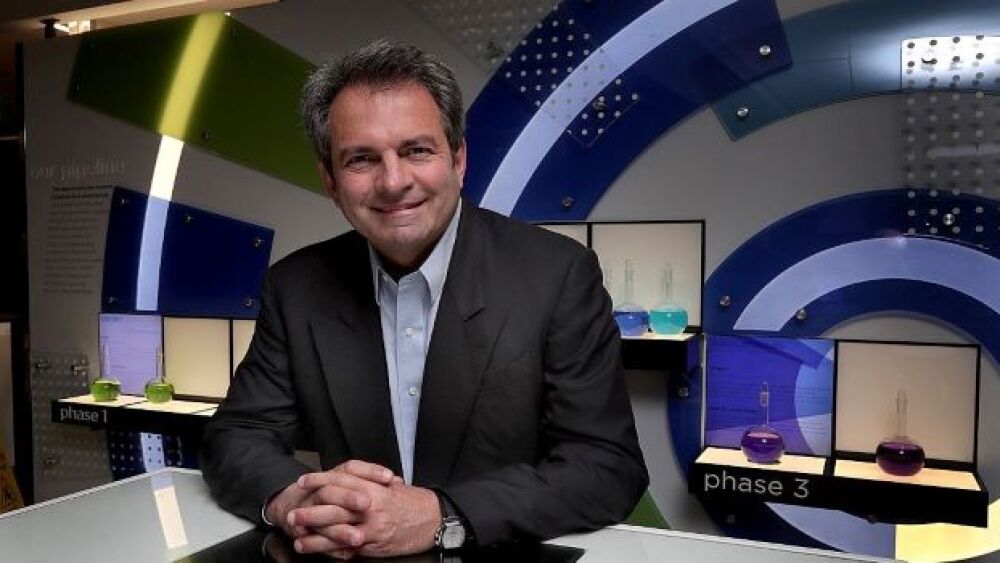In a conference call on Wednesday, Biogen CEO Michel Vounatsos outlined the company’s plans for commercial distribution of Aduhelm.
Biogen CEO Michel Vounatsos pictured above. (John Blanding/The Boston Globe via Getty Images)
It has been a whirlwind of a week for Biogen following the news that the U.S. Food and Drug Administration (FDA) approved Aduhelm (aducanumab) for the treatment of Alzheimer’s disease. The highly anticipated approval made Aduhelm the first Alzheimer’s drug approved in almost 20 years and the first drug to treat an underlying cause of the disease.
Biogen is wasting no time with rolling out the drug. In a conference call on Wednesday, Biogen CEO Michel Vounatsos outlined the company’s plans for commercial distribution of Aduhelm.
According to Vounatsos, the company plans to start sending shipments of the drug in the next two weeks. Biogen has prepared 900 treatment centers to administer it.
In the conference call, Vounatsos also reaffirmed the targeted price of the drug at $56,000 per year, which is not expected to change for the next few years.
“We have committed to not increasing the price of ADUHELM for the next 4 years,” Vounatsos said.
The price of the drug is surprising to many, as some analysts and advisors predicted the list price to be between $10,000 and $25,000 per year.
The price of the drug is not the only controversy the drug is facing.
The U.S. FDA said the approval was based on “substantial evidence” that the drug helped patients. However, as can be expected, not everyone in the industry is on board with the agency’s decision.
A couple of notable roadblocks the drug has faced include Biogen and Eisai abandoning the program in March 2019 and the FDA’s Peripheral and Central Nervous System Drugs Advisory Committee voting against recommending Aduhelm at the end of 2020.
On top of that, the data itself was complex and a topic of controversy among industry professionals and experts.
As BioSpace previously noted, Dr. Jason Karlawish, co-director of the Penn Memory Center at the University of Pennsylvania Karlawish, is an example of one expert that does not agree with the approval.
“I’m optimistic about the coming future here, so I have hope. I just think this is not the drug upon which to pin our hopes,” Karlawish said in an interview with CNBC Tuesday morning. “Desperation should drive funding for Alzheimer’s research, it should not drive the interpretation of scientific evidence.”
On the flip side, there are many groups lauding the decision, including the Alzheimer Society of Canada, which said the approval is “an important step forward for people living with Alzheimer’s disease.
Amidst the controversy and praise, only time will tell how the drug will be received, although the company expects an uptake of the drug over time.





